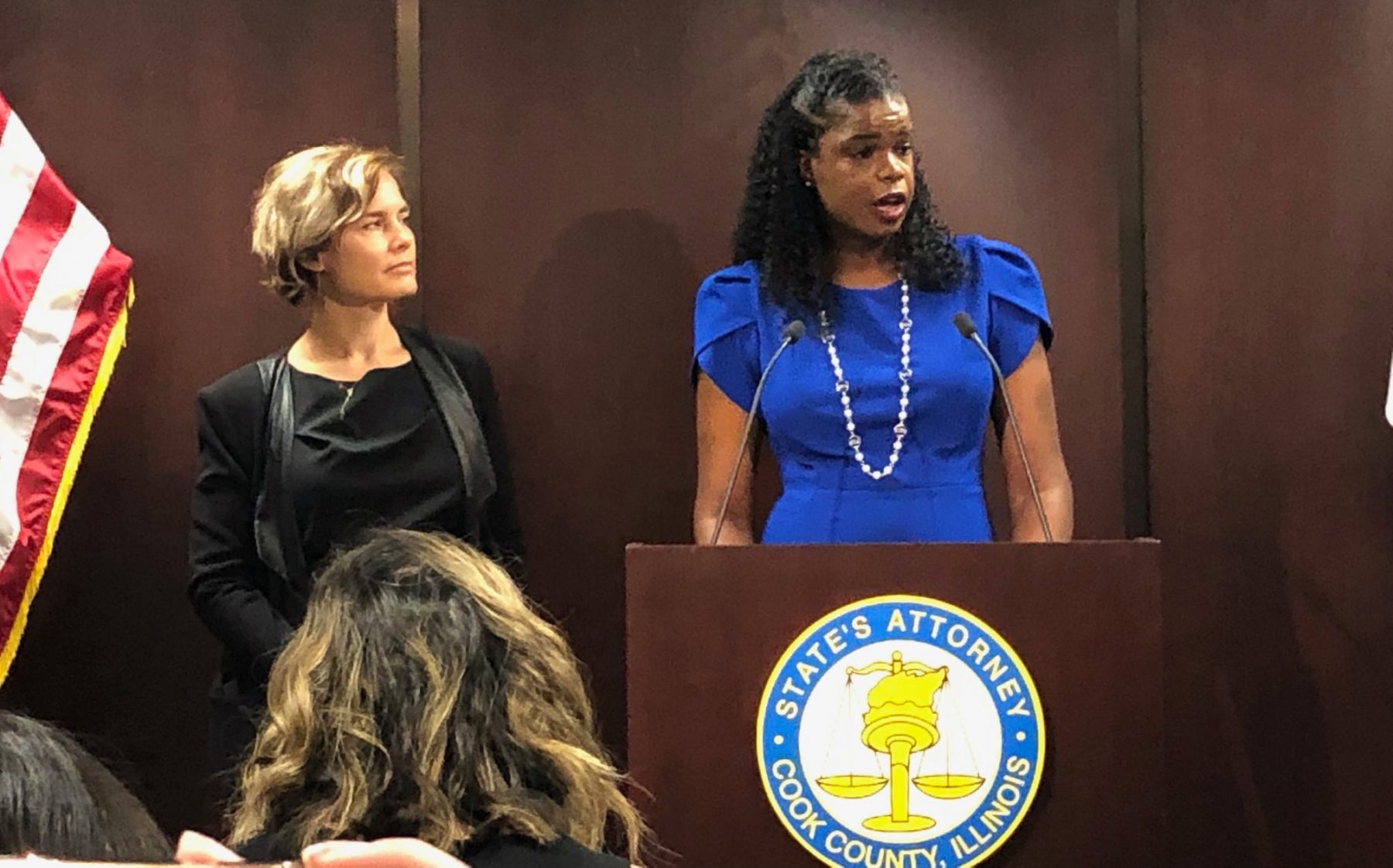On August 27, Chicago’s district attorney announced an ambitious plan to expunge tens of thousands of low-level cannabis convictions. Kim Foxx, the State’s Attorney General for Cook County, Illinois, is teaming up with Code for America, a tech nonprofit based in San Francisco, California.
Code for America administers software called Clear My Record which automates the conviction expungement process for local governments. The state of Illinois will allow expungement of certain cannabis convictions when its new legalization law takes effect in January 2020.
“We had about 50,000 cannabis arrests a year here in Illinois that disproportionately targeted African-American communities,” Kathie Kane-Willis, director of policy and advocacy for the Chicago Urban League, explained to Filter. “And that affects people’s ability to find employment, be approved for housing or access education.”
The state government estimates that about 770,000 convictions are eligible for expungement under its 2019 reform. State’s Attorney Foxx believes most of these concern residents of Cook County and the city of Chicago.
Automated expungement is likely to save time and money, both for the state and for people with cannabis convictions.
Automatic expungement will only apply to cannabis convictions that do not include other offenses or charges. People with multiple charges on their conviction will need to petition for expungement themselves.
Kane-Willis pointed out the complex link between cannabis criminalization and general over-policing. “Cannabis builds criminal records for many people, and it enmeshes them deeper in the criminal justice system,” she said. “It makes you more likely to be arrested for other offenses.”
Automated expungement is likely to save time and money, both for the state and for people with cannabis convictions. “It’s a time-consuming and adversarial process,” Kane-Willis said of the normal procedure. “You need to obtain your fingerprints and your criminal records from the state. You need to petition the state’s attorney to have your conviction expunged—it’s usually not just granted to you.” People often require legal assistance to expunge their records, which can make it very expensive.
Code For America uses software to analyze state and county records. It identifies who is eligible for expungement, and fills out their paperwork for the state’s attorney office to submit to a judge. This service is provided to the county at no cost, but the county must notify people by mail that their records are expunged.
The state of Illinois incorporated expungement provisions into its cannabis legalization reform this year, which will legalize possession of up to 30 grams of cannabis. Any past convictions up to that same amount will be sent to the state’s Prisoner Review Board within six months. The board will then verify and send these records to the governor for approval, and then the attorney general will request an expungement from a judge.
If a person’s conviction is for an amount between 30-500 grams, they must personally request an expungement from a judge. The judge may deny the request based on other factors, such as police testimony or “adverse consequences” from granting the expungement.
“Getting your expungement in the suburbs will likely be much more difficult than in Cook County,” said Kane-Willis. “Even if you complete all your paperwork, the state’s attorneys can object and weigh in. We need prosecutors who understand the damage that the War on Drugs creates and the public health effects of convictions in people’s lives.” She expressed skepticism that most other counties in Illinois will be as proactive as Cook County in granting expungements.
State’s Attorney Foxx is prioritizing the most recent cannabis convictions in Cook County. Under her plan, convictions dated 2013-2020 will be expunged by 2021. Those dated 2000-2012 will be expunged by 2023, and those before 2000 should be expunged by 2025.
“Obviously the folks who have been impacted by cannabis convictions for the longest time want to see relief sooner rather than later, and going backwards doesn’t help them as much,” Vilmarie Fraguada Narloch, director of drug education for Students for Sensible Drug Policy (SSDP), told Filter. “But doing it this way may make sense because it can free up capacity for the agencies doing this work. Using automatic expungement software can allow Attorney Foxx’s office to focus more attention on the older and more complex cases.”
But the real hard work of strengthening communities targeted by cannabis arrests is only beginning. Fraguada Narloch highlighted the Restore, Reinvest, and Renew Program, created by the Illinois legislature as part of its cannabis reform.
This program will devote 25 percent of cannabis tax revenues to community organizations and programming focused on violence prevention, re-entry and public health services. As 2020 approaches, it remains to be seen how Cook County and the state will deliver on their promises to repair the damages of cannabis prohibition.
Photo of Cook County State’s Attorney Kim Foxx, via Facebook.





Show Comments